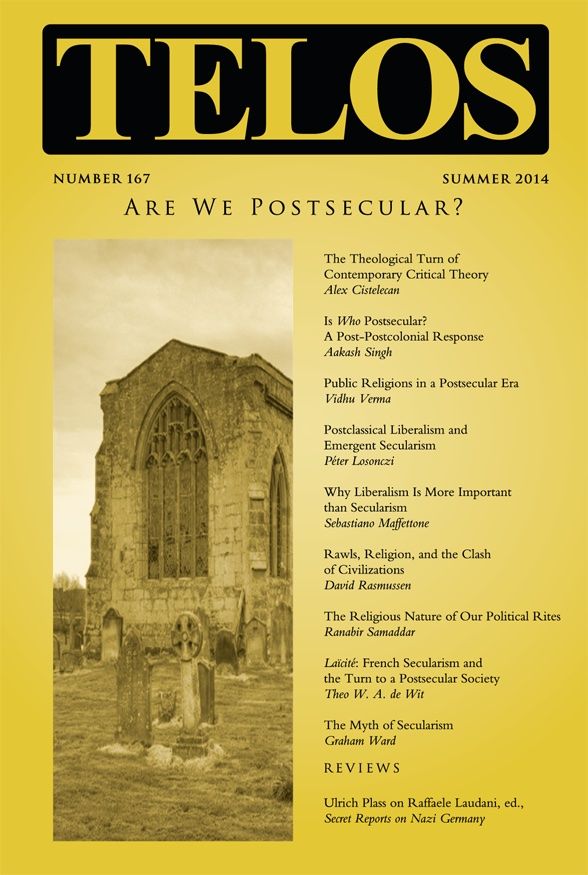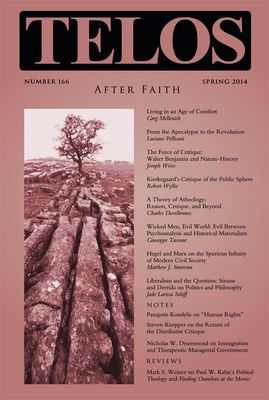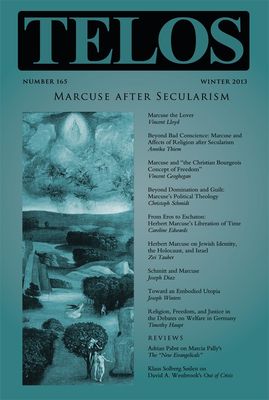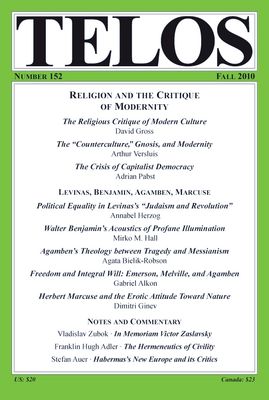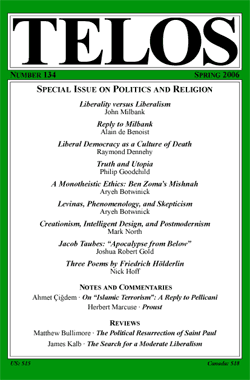Telos 167 (Summer 2014): Are We Postsecular? - Institutional Rate
Are We Postsecular?
For both Marx and Weber, secularization is the precondition for modernization, and this expectation that religion should wither away has become a commonplace assumption of vernacular liberalism. Yet the secularization thesis has also come under pressure for various reasons: the recognition of the plurality of types of modernity; a postmodern skepticism regarding the project of modernity as such; and the evident durability or even resurgence of forms of religious beliefs and practices despite predictions by social theory of their imminent demise. Furthermore, the classical accounts of secularizing modernity have typically referred primarily to developmental processes only in Western societies. Globalization calls that limited perspective into question. This issue of Telos asks about the end of the secularization thesis—“Are we postsecular?”—not only by examining contemporary philosophical accounts of religion but also by broadening the framework to include analyses of aspects of religion and politics in India. Because religion can play a very different role in political communities outside the West, inquiries into postsecularity have a lot to learn from postcolonial perspectives.
Introduction
Russell A. Berman
The Theological Turn of Contemporary Critical Theory
Alex Cistelecan
Is Who Postsecular? A Post-Postcolonial Response
Aakash Singh
Public Religions in a Postsecular Era: Habermas and Gandhi on Revisioning the Political
Vidhu Verma
Postclassical Liberalism and Emergent Secularism: An Overview, Interpretation, and Criticism of Akeel Bilgrami’s Theory
Péter Losonczi
Why Liberalism Is More Important than Secularism
Sebastiano Maffettone
Rawls, Religion, and the Clash of Civilizations
David Rasmussen
The Religious Nature of Our Political Rites
Ranabir Samaddar
Laïcité: French Secularism and the Turn to a Postsecular Society
Theo W. A. de Wit
The Myth of Secularism
Graham Ward
Reviews
From Critical Theory to Psychological Warfare: How Frankfurt School Intellectuals Fought the Nazi Enemy
Ulrich Plass
